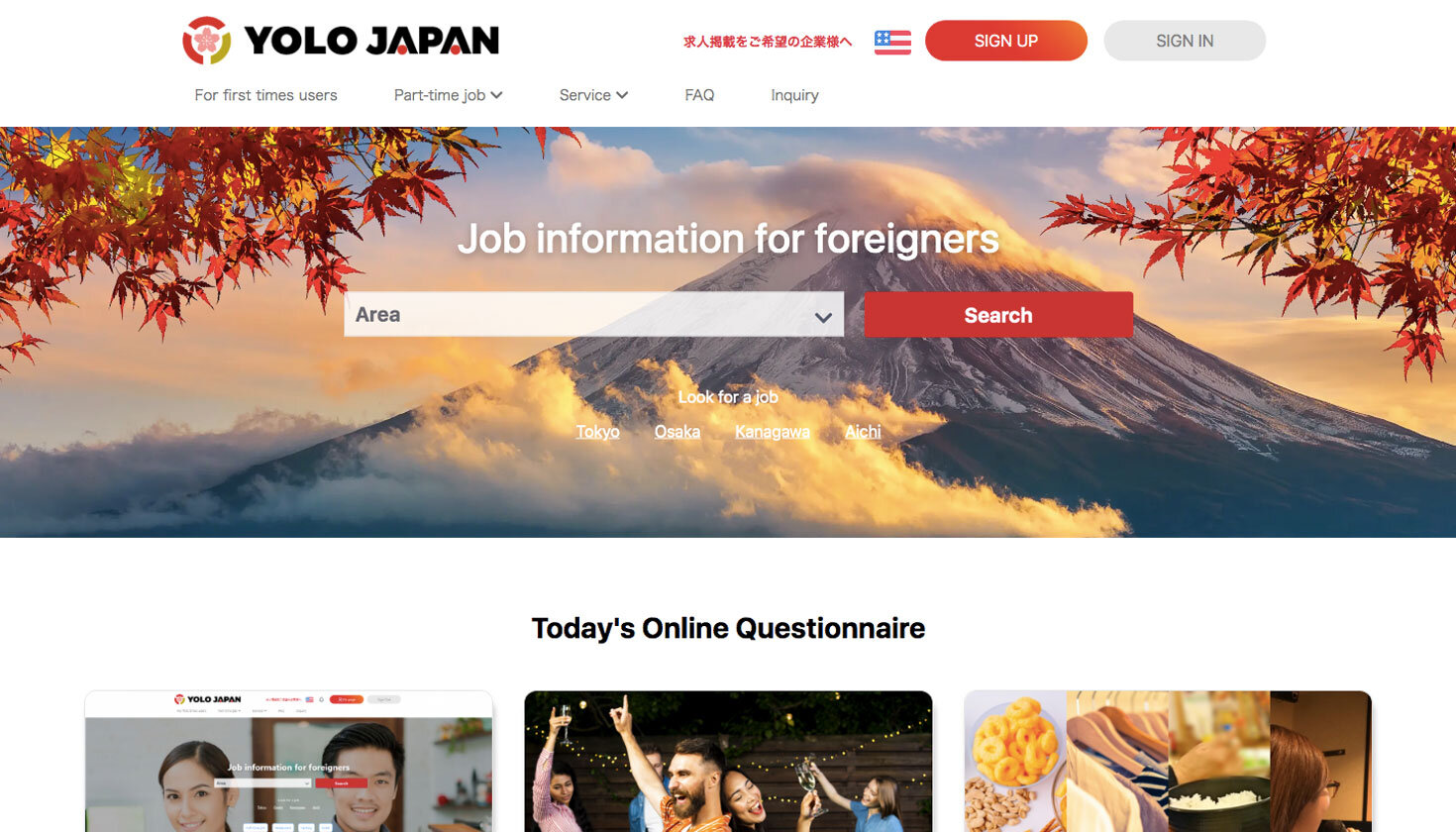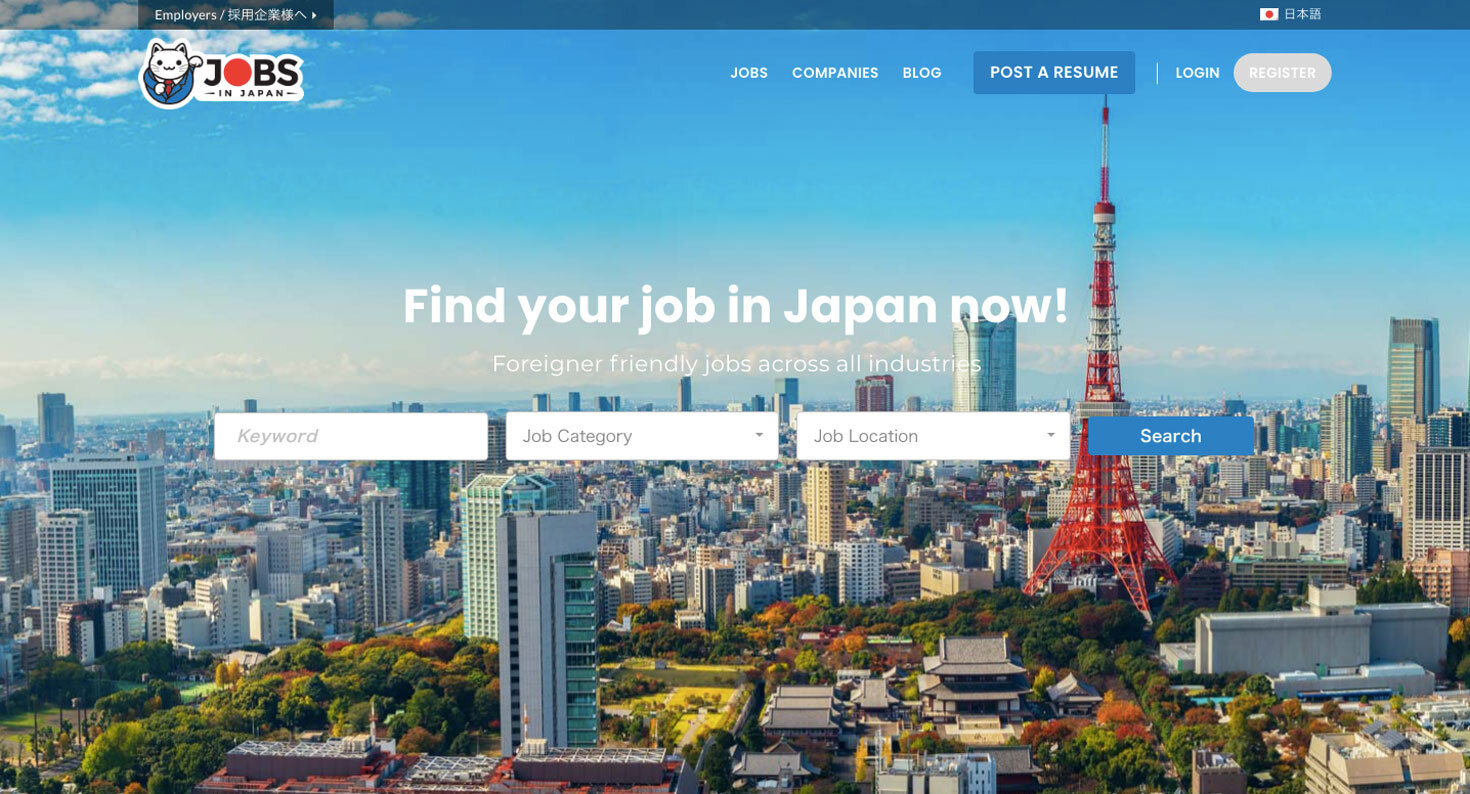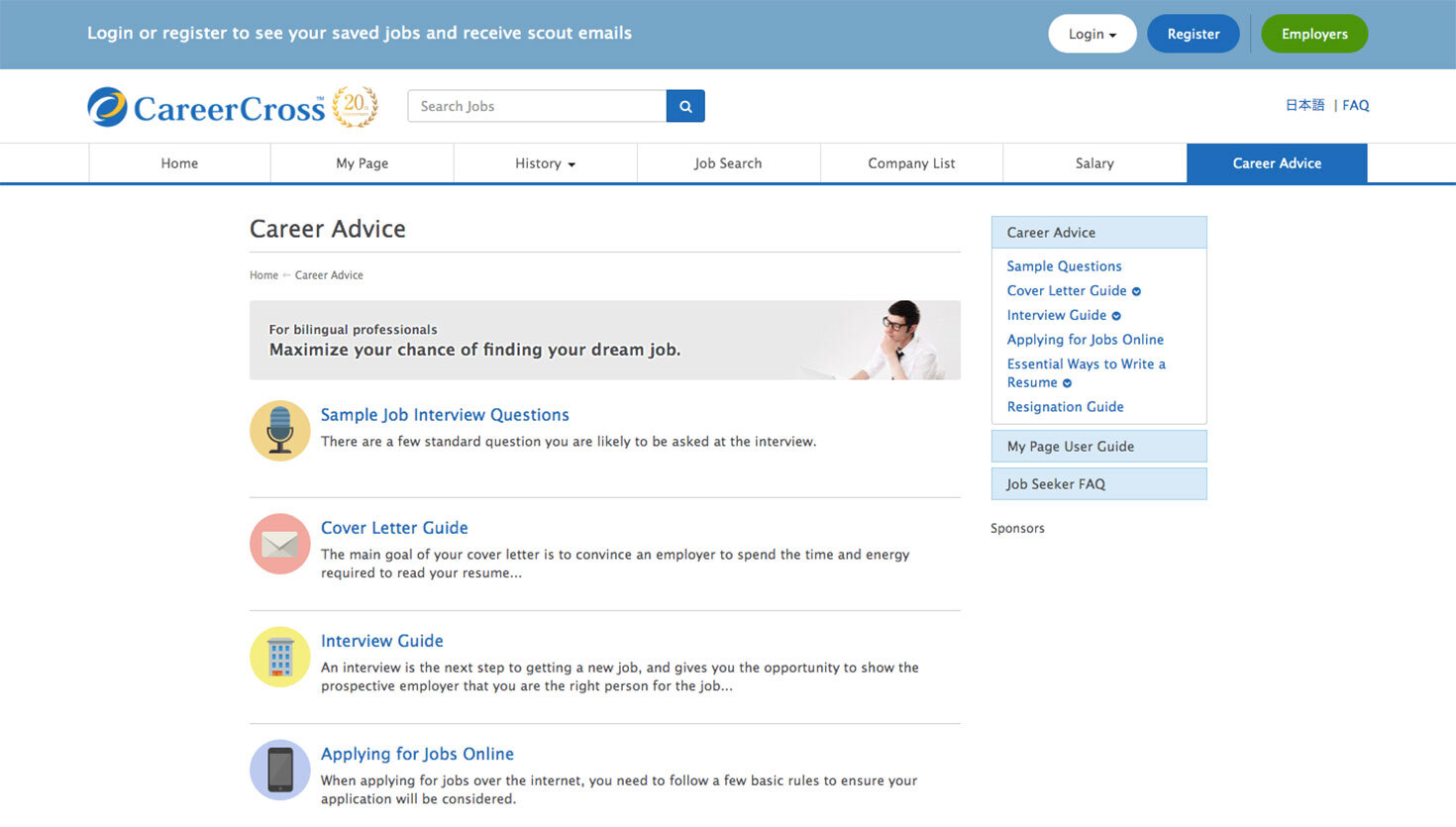Finding Work in Tokyo
Contemplating a career change? Fortunately for you, it's a jobseekers' market!
With businesses in Japan increasing their efforts to expand the market for their products and services beyond the domestic market to include more customers and clients from abroad, job opportunities for international residents in Japan are on the rise.

In this article, we'll give a brief overview of job hunting in Japan, including what sorts of jobs are available, where to find them, and what to be mindful of in the job-search process.
A Growing Range of Industries
No matter your age, experience, or Japanese-language ability, the education sector is still a solid bet for employment. Teaching English or other languages in which you are fluent remains a viable option.
If you have Japanese-language skills, however, your options expand in proportion to your skill level. Although the COVID-19 pandemic has significantly limited international travel (at the time of this writing), travel and tourism had been increasing before the pandemic and will undoubtedly do so again once the virus is under control. Consequently, the tourism industry has been eager to take on non-Japanese people to support foreign clientele at hotels, restaurants, and other travel-related businesses.
Furthermore, Japan's IT sector has experienced a growth spurt over the last several years. Companies are continually looking for new talent to develop smartphone apps, websites, and many other high-tech products and services. Here, technical skills can even take priority over Japanese-language proficiency.
Nevertheless, being able to speak, read, and write Japanese opens the door to the greatest variety of jobs. Those holding a Japanese Language Proficiency Test (JLPT) N1 or N2 certificate (the JLPT has five levels, N1 being the most difficult) are actively being sought for administrative, sales, marketing, and translation positions, among others.
Where to Look
Job fairs are one way to gain information and meet prospective employers. However, using the internet is without question the most efficient way to look for openings, and numerous sites now specifically cater to non-Japanese jobseekers. Some of the main job-search websites for English speakers are described below.
 A job fair targeting international workers in Tokyo
A job fair targeting international workers in Tokyo
YOLO JAPAN and JIKOPY are two sites designed particularly to assist non-Japanese who have studied in Japan, whether at language schools or at Japanese colleges and universities. Registration is free and allows you to be contacted by recruiters.
 YOLO JAPAN
YOLO JAPAN
 JIKOPY
JIKOPY
The job-listing sites called Jobs in Japan and GaijinPot Jobs
are both geared toward native speakers of English with or without Japanese-language ability. GaijinPot Jobs, in particular, says that native speakers of English account for over 70 percent of its 650,000 users who visit the site each month.
Many companies in Japan post their openings for part-time and career positions directly on such platforms. Sales Manager Ryan Nagle of GPlusMedia Inc., which operates GaijinPot Jobs, explains that this is a big plus, allowing the applicant to search through postings and proactively contact specific companies. "The person who wants to hire someone is also the person that's directly looking at your resume," he says.
 Jobs in Japan
Jobs in Japan
 GaijinPot Jobs
GaijinPot Jobs
Meanwhile, multilingual jobseekers who speak Japanese can use sites like Daijob and CareerCross to find long-term career positions in Tokyo. Like GaijinPot, these sites are registration-based intermediaries where jobseekers can view, apply for job postings, and also be scouted by recruiters and company HR representatives.
 Daijob
Daijob
CareerCross states that 40 percent of its nearly 300,000 registered members are non-Japanese living in Japan, from countries such as India, the United States, China, Philippines, South Korea, France, Vietnam, the United Kingdom, and many other countries around the world. Covering entities that range from large companies to start-ups, the site regularly posts more than 6,000 positions in areas such as engineering, administration, sales, marketing, and education.
 CareerCross
CareerCross
Adapting to the Japanese Workplace Environment
As you embark on your job search, you can find pointers for preparing your résumé, navigating interview etiquette, and answering interview questions in the GaijinPot Jobs' JOBS AND EMPLOYMENT GUIDE 2020.

Finally, if you're trying to stand out as a candidate for a position, consider the Japanese employer's point of view. Nagle offers, "There's an element of risk with hiring a foreigner, so trying to mitigate that risk would be beneficial."

Nagle suggests that, to allay the concerns of prospective employers, you should demonstrate not only your qualifications but also your work ethic and willingness to be part of the group. "A lot of companies have this idea that you're all on the ship together, and if water's coming in, you're all going to help bail it out."
If you're ready to take on Japan's unique but fascinating work culture, see the links below to get started. And--welcome aboard!
■For more information
*This article was posted on the Life in Tokyo website operated by the Tokyo International Communication Committee on February 4, 2021.
